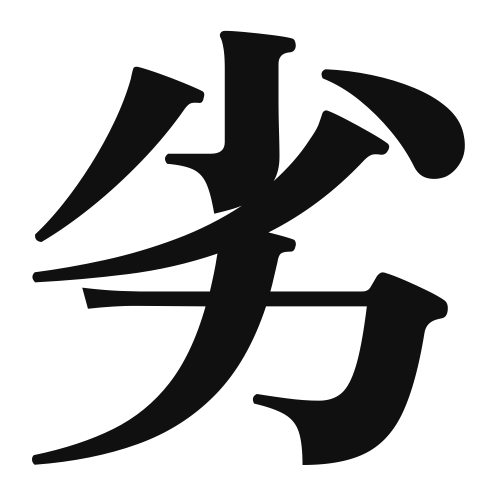1. Overview of Meaning
The kanji “劣” (pronounced “retsu”) means “inferior” or “to be inferior.” It is used to describe something that is of lower quality or status compared to something else.
2. Formation and Radical
Formation of the Kanji: The kanji “劣” is a phonetic-ideographic character (形声文字). It combines the radical for “power” (力) with a phonetic component that suggests its pronunciation.
Radical: The radical of “劣” is 力 (power), which often relates to strength or ability.
3. Examples of Usage
Common Words and Phrases: Some frequently used words that include “劣” are “劣化” (rekka – deterioration) and “劣等” (rettou – inferiority).
Example Sentences in Daily Conversation:
- この製品は他のものに比べて劣っている。
- (This product is inferior compared to others.)
4. Synonyms and Antonyms
Similar Kanji: A similar kanji is “劣る” (otoru), which also means “to be inferior” but is used more as a verb.
Opposite Kanji: The opposite kanji is “優” (yuu), which means “superior” or “excellent.”
5. Cultural and Historical Background
Relation to Japanese Culture: The concept of “劣” is often discussed in the context of competition, such as in education and business, where being “inferior” can have significant implications.
Proverbs and Idioms: One common saying is “劣者は勝者に学ぶ” (the inferior learns from the superior), emphasizing the importance of learning from those who are better.
